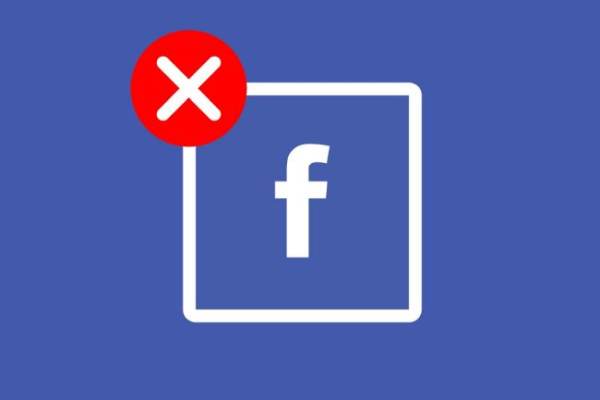Published on the 29/03/2019 | Written by Jonathan Cotton

In the aftermath of the NZ terrorist attack, Cantabrians, countrymen and corporates alike are taking a stand…
As New Zealand comes to terms with the hideous terrorist attack of March 15 – and the livestreaming of that attack over social media – some are wondering whether it’s time to boycott platforms that refuse to address the ugly reality that can accompany live streaming tech.
Right now Facebook is drawing most of the ire and that seems fair enough: The attacked was carried out on – and arguably for – Facebook’s live video streaming platform, and the 200 lost souls who sat down in sick anticipation to watch the live feed as it occured (imagine if they’d called the NZ Police instead).
The company says it removed the 17 minute video as soon as it became aware of it, or ‘within minutes’, with around 4,000 people watching the original video hosted on Facebook, but when it comes to moderating livestream content, it’s always a case of too little too late: The video is now widely distributed over the internet, available for those brutish enough to seek it.
Companies like Facebook and YouTube enjoy billion-dollar profits without ever having been truly challenged on their lack of accountability when it all goes wrong.
Facebook’s failure to deal with this material better has been judged as just that: A failure.
“We cannot simply sit back and accept that these platforms just exist and that what is said on them is not the responsibility of the place where they are published,” said New Zealand Prime Minister Jacinda Ardern last week.
“They are the publisher, not just the postman.”
Few seem inclined to disagree with the Prime Minister’s analysis right now and corporates have been quick to mirror that public sentiment: Telcos Spark, Vodafone and 2degrees (who have also collectively suspended user access to websites that were/are hosting the video), penned an open letter to Facebook, Google and Twitter calling for an urgent action.
“Already there are AI techniques that we believe can be used to identify content such as this video, in the same way that copyright infringements can be identified,” the letter reads.
“These must be prioritised as a matter of urgency.”
“For the most serious types of content, such as terrorist content, more onerous requirements should apply, such as proposed in Europe, including take down within a specified period, proactive measures and fines for failure to do so. Consumers have the right to be protected whether using services funded by money or data.”
A statement from the Association of New Zealand Advertisers and Commercial Communications Council goes further, challenging advertisers here and around the world to take action by hitting Facebook where it hurts most. “Following the Christchurch attacks, we have spoken with New Zealand’s largest advertisers, and advertising and media agencies and we are collectively calling on our global networks to petition Facebook to make immediate changes to the security of its live streaming platform or, alternatively, suspend its use altogether until it can ensure the spread of such harmful content can never happen again.”
Advertisers and agencies who agree should consider “suspending advertising on Facebook until its live streaming functionality is either taken down or sufficient controls are put in place.”
That’s happening already. ASB, ANZ, BNZ, TSB and Westpac have announced suspensions in their Facebook advertising, as have Lotto and Tourism New Zealand, with others expected to follow. Likewise, the Government is seeking ‘urgent advice’ on whether it should withdraw its advertising spend – estimated at about NZ$100m annually – on Facebook and other social platforms.
So, for once, there’s a clear consensus across private and public sectors, and the wider community itself: Fix it Facebook and others, or else.
If only it were that easy.
Yes, we’re outraged at Facebook – that nightmarish video has certainly served to galvanise attitudes against the social media titan – but what about YouTube? Tens of thousands of instances of the video have been uploaded to (and now removed from) YouTube, with uploads hitting one-per-second in the hours following the terrorist attack.
And following that logic, if YouTube is found wanting, what about its parent company, Google? What is its responsibility here? Many of the the above advertisers boycotting Facebook are still active on Google Ads.
When it comes to a social media boycott, the question seems to be this: Facebook is not alone in its failure to moderate this content. Neither is YouTube, and by association, Google. So when culpability seems to point in every direction, where do we draw the line? It’s a tough call, because both Facebook and YouTube are among a handful of companies that have captured the online media and communications markets. If we shift our advertising spend from them, where do we shift it to?
And that’s not a rhetorical question. Because one thing has become crystal clear in the aftermath of the Christchurch terror attack: Companies like Facebook and YouTube enjoy billion-dollar profits without ever having been truly challenged on their lack of accountability when it all goes wrong.
The time for accountability is now. Yes, we know that radically better content moderation of livestreaming material is likely to be expensive, doubly so given it runs counter to a business model based on quick and easy content-sharing. And we know that Facebook probably doesn’t want to ground its live streaming service, tiny part of its overall product suite though it is. Presumably Boeing didn’t want to ground its global fleet of 737 Max aircraft either, but it did.
So what do we do? Continue business as normal knowing that we could do so much better? Or cut advertising spends with the advertising giants, painful though it may be, until we get action?
Certainly Facebook’s feeble policy response to the terror in Christchurch (which it also fails to mention) falls well short.
Right here, right now, I’m inclined to go with the latter.
Facebook – and YouTube and Google – can do better, and they must. Facebook has created a type of functionality that it seems unable or unwilling to control or contain. If that’s a truly unacceptable situation for local advertisers, then the war of attrition starts now.



























